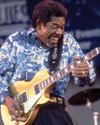
Playing songs is what it’s all about! And a balanced practice routine should help you to achieve the skills you need, to be able to play the songs you want to play.
But what songs should you be working on? Many students fall into traps of either playing songs that are too easy or far too hard. So how does one find the balance?
I recommend that all guitarists work on three types of songs at any one time. I call them 'Campfire', 'Developers' and 'Dreamers', and here's why this can be such a great way to stay motivated on guitar.
Campfire songs are ones you can play with ease. Ones you can remember and play confidently. Everyone should have at least 10 songs they can play at a party, so think about that kind of situation when you decide on your list. Think about where and with whom you might play them, and then choose appropriately. Songs that people like to sing along with in my circles are Wish You Were Here, Heart Of Gold, Hallelujah, Free Fallin', Time Of Your Life ...but if your social circle's taste is more country, etc, then obviously choose accordingly.
Pick songs that are easy to recall even after a few beers. Revise them every few months to keep them current in your mind, maybe with some extra revision if you have something coming up where you might be put on the spot.
Diese Geschichte stammt aus der October 2021-Ausgabe von Guitar Techniques.
Starten Sie Ihre 7-tägige kostenlose Testversion von Magzter GOLD, um auf Tausende kuratierte Premium-Storys sowie über 8.000 Zeitschriften und Zeitungen zuzugreifen.
Bereits Abonnent ? Anmelden
Diese Geschichte stammt aus der October 2021-Ausgabe von Guitar Techniques.
Starten Sie Ihre 7-tägige kostenlose Testversion von Magzter GOLD, um auf Tausende kuratierte Premium-Storys sowie über 8.000 Zeitschriften und Zeitungen zuzugreifen.
Bereits Abonnent? Anmelden

THE MOODY BLUES
This month Stuart Ryan delves into the picking style of this British prog legend whose acoustic guitar has powered many a Moody Blues song.

WAYNE KRANTZ
This issue Nick Mellor provides an insight into this brilliant jazz stylist, focusing on his approach to improvising over static chords.

OPEN G TUNING
Open tunings are great fun and can help create exciting new ideas. Simon Barnard shows how to incorporate open G tuning into your playing.

RODRIGO GOUVEIA
Last month we featured Mateus Asato, and mentioned the importance of the neo-soul style in his playing. Here we turn to his fellow Brazilian, the master of neo-soul fusion.

MARK KNOPFLER
Our topic this month is a master craftsman as both guitar player and songwriter. His style is unique and his influence spreads far and wide.

U2
Martin Cooper checks out the chiming pedal delay tones of this stadium-filling band from Dublin, Ireland, and guitarist The Edge.

LUTHER ALLISON
It’s blues with a touch of soul this month, as David Gerrish explores the dynamic, expressive style of an often overlooked Chicago bluesman.

JOHANN KASPAR MERTZ Capriccio
This month Declan Zapala explores the music of Austria at the turn of the Romantic period with a fiery caprice to level up your fingers and unlock your inner virtuoso.

THE CROSSROADS Michael Landau
John Wheatcroft explores the playing of a session ace _ and blazing blues-rock maestro who graces the top-flight m band of singer-songwriting legend, James Taylor.

VIDEO MASTERCLASS Troy Redfern
This month GT welcomes this slide guitar virtuoso. If you've been wanting to take your slide playing to the next level then this is one's for you. With Jon Bishop.